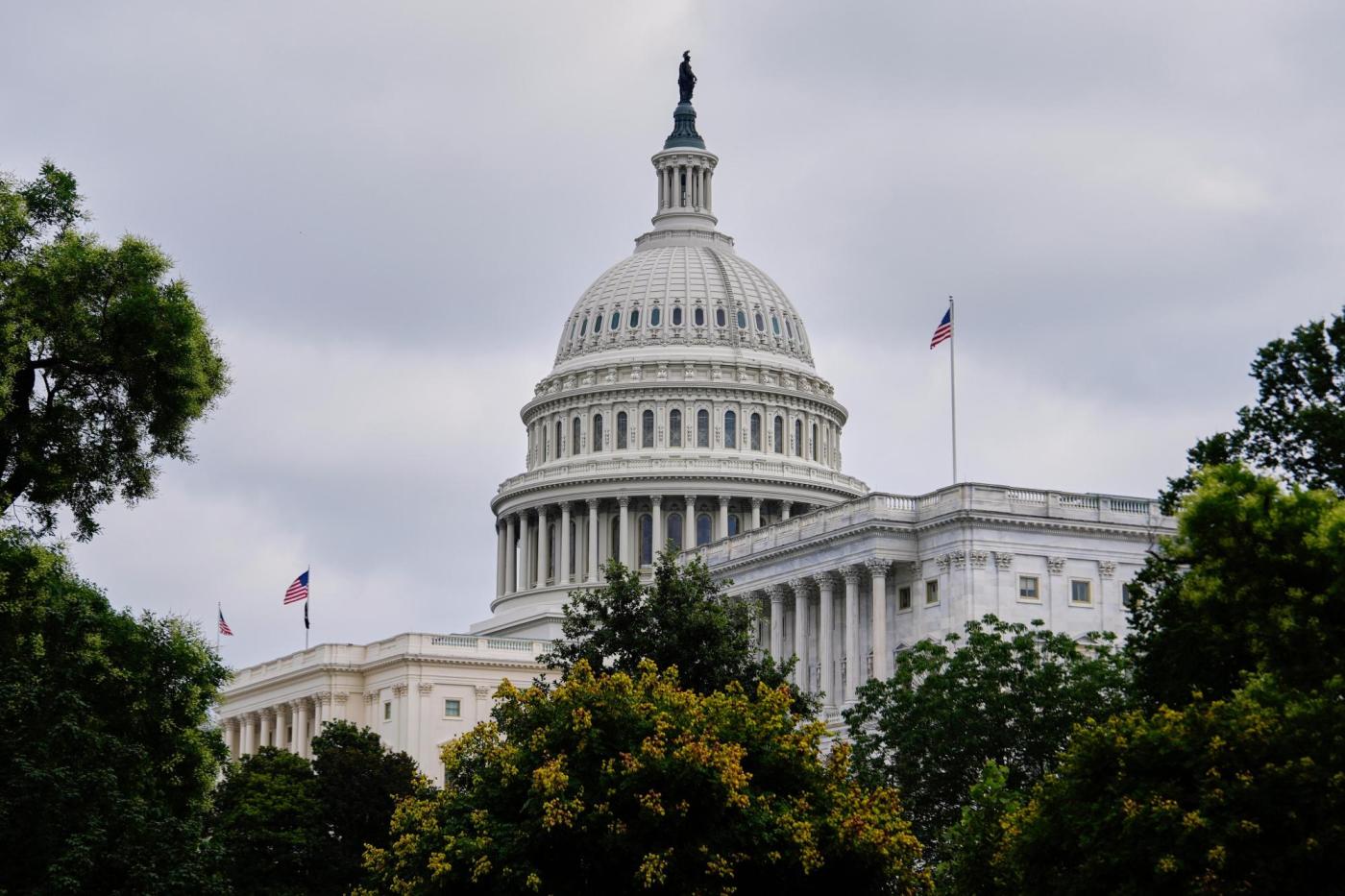California sued the National Science Foundation on Wednesday alongside 15 other states, claiming the federal agency illegally cut funding for scientific research in moves that will “devastate” critical work at universities.
The lawsuit highlights the work of the NSF — an independent agency created by Congress in 1950 — in making the U.S. a leader in science, technology, engineering and math. And it cited a 1980 Congressional authorization of NSF funding that called for “full use of the human resources of the Nation in science and technology,” and “increased participation in science and technology by women and minorities,” to promote America’s national interest.
“Congress has clearly articulated and repeatedly reinforced a comprehensive national policy that specifically seeks to increase the participation of women, minorities, and people with disabilities in STEM,” said the lawsuit, filed in New York U.S. District Court. “And it has directed, empowered, and funded NSF to carry it out.”
The cuts violate Congress’s directives on the NSF, and unconstitutionally usurp the power of Congress, the lawsuit alleged.
U.S. universities have already halted projects across a range of scientific disciplines, the lawsuit said. “The loss of these projects constrains innovation and slows down the development of future proposals that could advance national STEM priorities,” the lawsuit claimed.
Cuts for federal research grants have hit Bay Area universities hard, with many scientists losing or halting projects that had been funded by the NSF and the U.S. National Institutes of Health. At San Jose State University, the NIH cut a five-year, $1.5 million grant to the U-RISE program, part of a nationwide NIH initiative to help students from underrepresented groups advance through college into graduate biomedical programs. UC San Francisco ophthalmology professor Nisha Acharya lost a grant to study the effects of a shingles vaccine on shingles of the eye.
The legal action takes aim at an April 18 NSF directive that said research projects with impact “limited to subgroups of people based on protected class or characteristics do not effectuate NSF priorities.”
Related Articles
You should wear sunscreen even if you have darker skin. Here’s why
Astronomers discover strange new celestial object in our Milky Way galaxy
US peregrine falcons adapt well to city living as their coastal cousins struggle with bird flu
Get ready for several years of killer heat, top weather forecasters warn
SpaceX launches another Starship rocket after back-to-back explosions, but it tumbles out of control
On the day the directive was issued, “NSF began issuing termination notices en masse to projects … that seek to increase STEM participation by women, minorities, and people with disabilities; that study misinformation; and that address environmental justice,” the lawsuit alleged.
A second target of the lawsuit was NSF’s 15% cap — announced May 2 — on the share of a grant’s funding that can go toward “indirect” research infrastructure costs such as lab maintenance, lighting, support staff and security. That cap “will result in NSF divesting millions of dollars from the university-driven research Congress has directed it to support,” the lawsuit claimed.
The NSF declined to comment on the lawsuit. In an FAQ, the agency said it had cut grants that did not align with its goals and priorities, “including but not limited to those on diversity, equity, and inclusion (DEI), environmental justice, and misinformation/disinformation.”
The lawsuit comes as the Department of Government Efficiency, created by a Trump executive order and spearheaded by billionaire Tesla and SpaceX CEO Elon Musk, embeds itself in federal agencies including the NSF, on a mission to slash spending, staff and programs related to diversity, racial inequality, gender and climate change.
During President Donald Trump’s second term, California had as of May 13 sued the federal government 20 times, with many of the cases claiming his administration and federal agencies were usurping Congressional power. During Trump’s first term, California sued his administration 123 times, the state’s Attorney General Rob Bonta has said. A study by New York University’s law school found that Trump’s first administration lost 57% of lawsuits filed against it over major federal rule changes.
Cuts to U.S. National Institutes of Health grants have also raised concerns about the fate of U.S. scientific research, and spawned lawsuits by California and other states.
Wednesday’s lawsuit asked the court to throw out the April directive and the indirect-costs cap.





